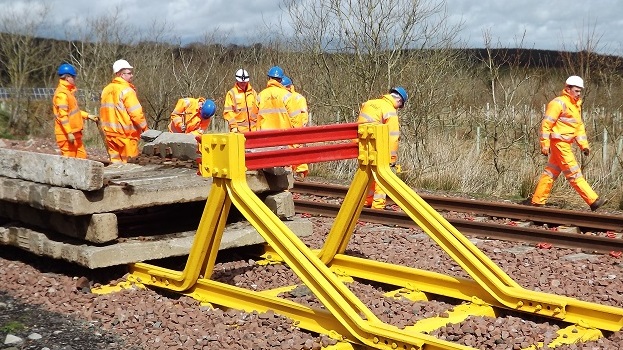Monitoring of certifications and the resourcing process highlighted in response.

A PTS training course taking place pre-Covid-19 © Vital Human Resources/Morson Group
Concern
A reporter believed trackworkers at four Vital Human Resources sites didn’t have adequate competencies to carry out manual tasks or operate machines, such as controlling cranes. The reporter said operatives had been incorrectly assigned, and that competencies were not adequately monitored when assigning shifts. They felt that some operatives didn’t have valid PTS (personal track safety) training and that track inductions were not happening.
They asked Vital Human Resources Ltd to:
- ensure operatives at these sites have the relevant competencies
- investigate to ensure all competencies and PTS are valid.
Morson/Vital Human Resources’ response
All operatives working on the railway infrastructure have the relevant PTS certification and track inductions where required. The resourcing teams try to ensure a mix of small tools certifications within the assigned teams. Sometimes a client does not specify the full requirements for the work but asks for a Controller of Site Safety (COSS) and six ‘trackworkers’. We encourage clients to order ‘skilled trackworkers’ if needed, as they hold more track tools and equipment competencies, and to specify the tasks and equipment to be used so that we can match qualified people to the task.
We gathered details of operatives who had visited each site over three months. Only one of these sites had Vital crane controllers: seven over two weekends, all with the correct and current competencies. The others had operatives from COSS to trackworkers, level crossing attendants, track chargemen and an engineering supervisor, all with correct competencies.
During a full PTS training course, operatives gain competence from being trained to use five track tools, but these are not specified. Other small tools competency sits outside the Sentinel scheme and relies on people carrying certification from an employer outlining which tools they have been trained on. Operatives are issued with a card proving they have the competence to operate small tools. The client’s on-site representative should inspect this before tasking an operative to use equipment for a small tool duty. This prevents anyone who is not deemed competent undertaking a task they should not be doing. We continue visiting these sites and checking Sentinel cards.
We have now held toolbox talks about always carrying valid certification on site. Longer term, we recommend that the Sentinel scheme includes small tools and other equipment competencies currently excluded. Being able to access an individual’s skill set in one location would mean their competencies could be confirmed easily and accurately, which would make for a safer work site.
Find out more
Tags
- Training and Competence
- Supply Chain - Infrastructure
- Supply Chain - Operator Services
- Other
